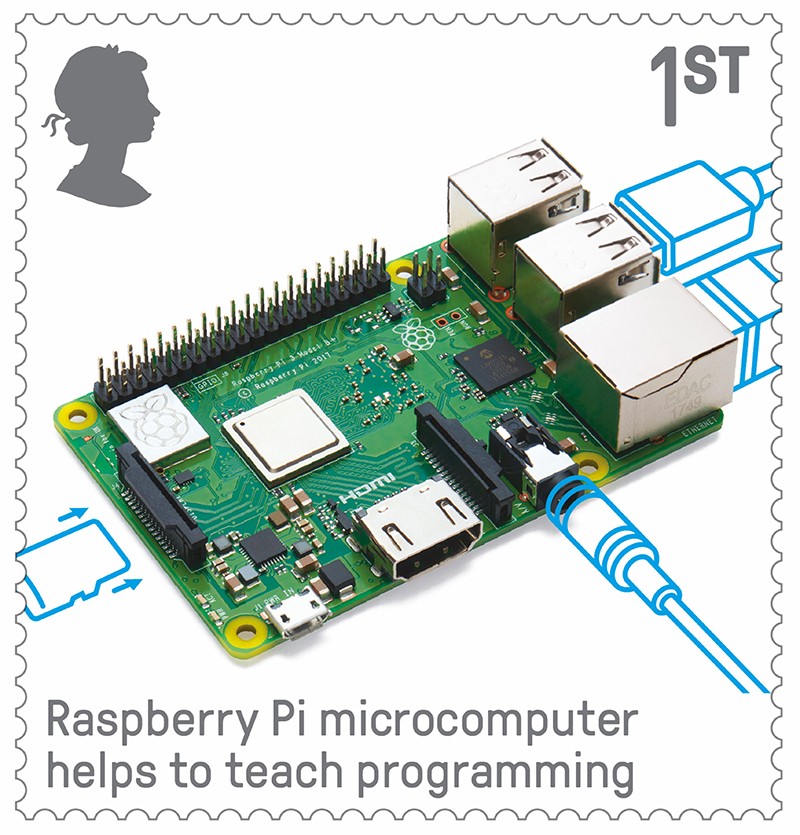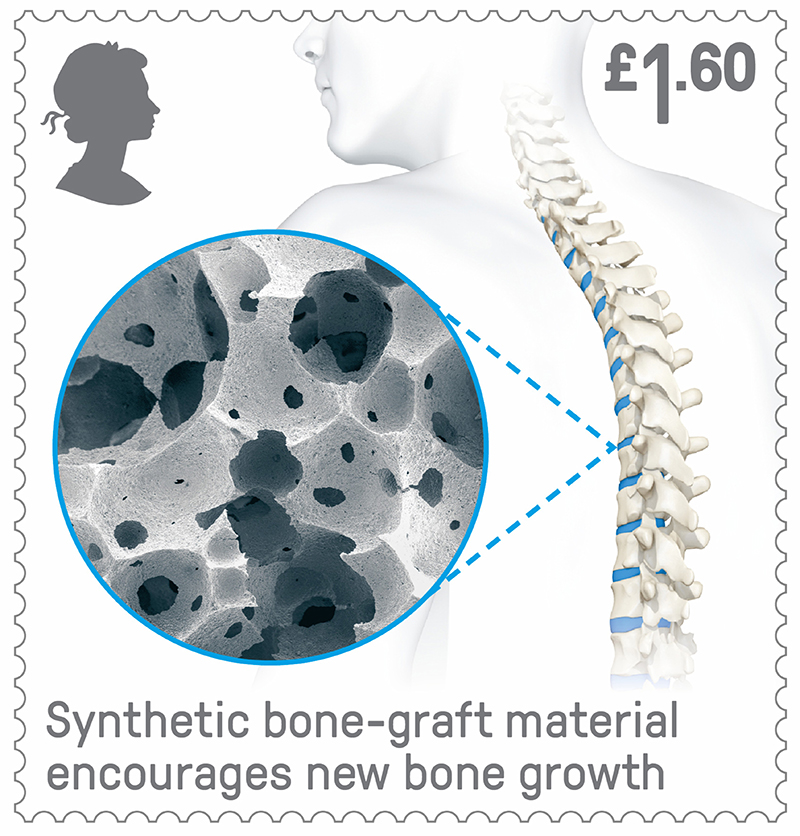‘Marvels of modern life’ created by Johnians get national recognition with Royal Mail stamps
"The UK is a global engineering powerhouse with many world firsts developed here"
The Raspberry Pi computer and a synthetic bone-graft are among the feats of engineering from the past 50 years being celebrated by the Royal Mail in a new set of stamps.
The 10 stamps feature ‘marvels of modern life’ created by British engineers and highlight inventions in medicine, travel, and infrastructure.
Dr Dame Sue Ion, British engineer and judge for the Royal Academy of Engineering MacRobert Award, commented: “The UK is a global engineering powerhouse with many world firsts developed here that have both benefitted our economy and helped to transform people’s lives for the better. This wonderful new set of Royal Mail stamps perfectly encapsulates the technical and commercial achievements made by British engineers over the last 50 years.”

"It's great to see the Raspberry Pi in this collection next to so many other world-changing engineering projects from the UK"
The Raspberry Pi device is a credit card-sized microcomputer which sparked a worldwide revolution in low-cost computing. Since the product’s launch in 2012, more than 22 million micro-computers have been sold, making the Raspberry Pi Britain’s best-selling computer.
Johnians Dr Eben Upton CBE and Dr Robert Mullins co-founded the Raspberry Pi Foundation in 2009. Dr Upton, who is the current CEO of Raspberry Pi (Trading) Ltd, was a student at St John’s for his undergraduate and postgraduate studies and was Director of Studies in Computer Science from 2004-2007.
Dr Robert Mullins took over this role when he joined St John’s as a Fellow in 2007. Since stepping down from the Raspberry Pi Foundation in 2014 he has gone on to co-found lowRISC – a not-for-profit platform designed to bring the benefits of open-source to hardware.
Speaking about the new Royal Mail stamps he said: "The team at Raspberry Pi continue to do a fantastic job - helping create a new generation who are confident and knowlegable about technology. It's great to see the Raspberry Pi in this collection next to so many other world-changing engineering projects from the UK."

Actifuse is a synthetic bone-graft product based on the sponge-like structure of cancellous bone
The synthetic bone-graft enables bones to heal after significant or complicated bone breakages which otherwise the body would be unable to repair on its own. Bone grafts can be taken from a patient’s own body, but limited availability and the need for additional surgery makes the engineered synthetic bone-graft material a vital tool to aid the repair of fractures.
Before Professor Serena Best, became a Fellow of St John’s College and then Professor of Materials Science, Department of Materials Science and Metallurgy, she was part of the team at Queen Mary University of London (QMUL), headed by Professor William Bonfield, which spun out the company, ApaTech, based on synthetic bone-graft technology mimicking the composition and sponge-like structure of cancellous bone.
After becoming a College Fellow in 2000 she continued research in the area with Professor William Bonfield, Emeritus Professor of Medical Materials in the University of Cambridge, and collaborated with Professor Iain Gibson, University of Aberdeen, and Dr Karin Hing, Queen Mary University of London. Their combined work underpinned the commercial launch of the bioactive synthetic bone graft Actifuse which has been used by surgeons worldwide.
Also included in the Royal Mail collection are the Falkirk wheel, the world’s only rotating boat lift, the Harrier Jump Jet, and Crossrail’s tunnel boring project which will create a new rail line from Reading to Essex.
The stamps can be purchased at Royal Mail Post Offices and online.
Published: 17/05/19